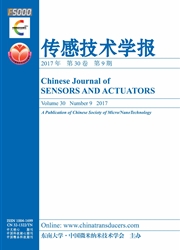

 中文摘要:
中文摘要:
目标跟踪是无线传感器网络的一个基本应用,而能量高效是目标跟踪研究的一个重要目标。提出了一种自适应目标跟踪协议,该协议将传感器节点的状态分为睡眠状态、监测状态、跟踪状态三种状态;并对每个进行感应的传感器节点设置了节点权值,每个节点通过计算自己的节点权值来决策是否参与目标的跟踪,它在很大程度上减少了参与目标跟踪的节点数量。领导节点根据目标的运动速度来自适应地调整数据报告的频率,提高了能量利用率和跟踪精确度。模拟实验表明我们的算法具有良好的节能效果。
 英文摘要:
英文摘要:
Target tracking is a foundational application in wireless sensor networks, and energy-efficiency is also an important goal for target tracking applications. An adaptive target tracking protocol is proposed. The states of sensor nodes are divided into sleep, monitoring and tracking states. We set the node weight for each sensing node which calculates its own weight value to decide whether to participate to the tracking of targets. This protocol reduces the number of participation target tracking nodes for a high level. At last, the leader nodes adjust the frequency of reporting according to the velocity of the target, which not only improves energy efficiency, but also enhance the tracking accuracy. The simulation results show that this protocol has a good performance in energy-efficiency.
 同期刊论文项目
同期刊论文项目
 同项目期刊论文
同项目期刊论文
 期刊信息
期刊信息
